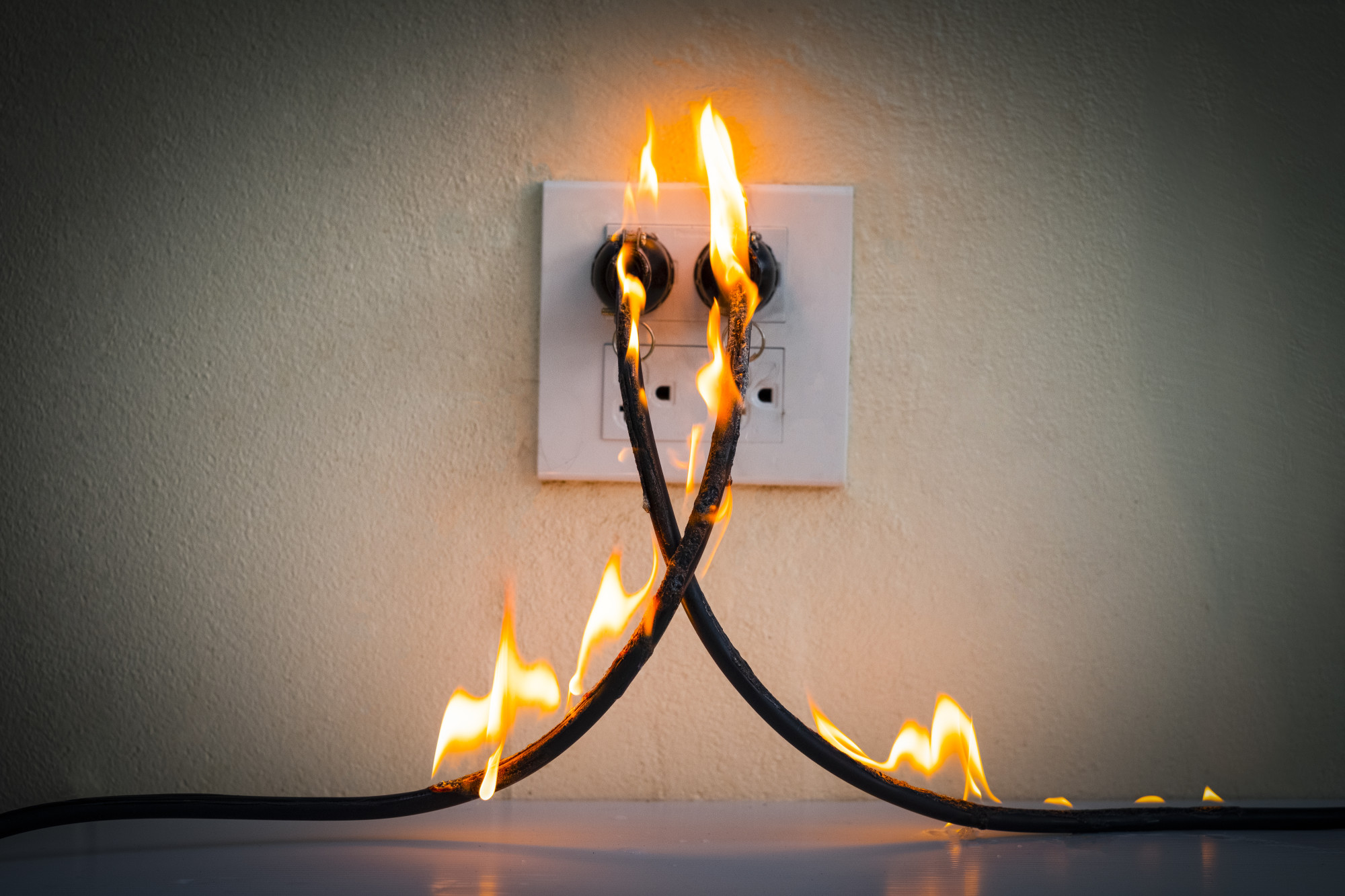If your home experiences power surges, it’s more than an annoying inconvenience.
Power surges can cause damage and be dangerous if you don’t take steps to prevent and safeguard against them.
Close to 45,000 house fires are responded to each year that are caused by an electrical malfunction. More than 35,000 of those are caused by electrical distribution and lighting issues.
Many of these are due to power surges.
Keep reading to learn what power surges are, what causes them, the possible dangers and damage caused by power surges, and how to proactively safeguard your home from them.
Table of Contents
What Is a Power Surge? What Causes Them?
A power surge is a burst or overload of electrical charge traveling down the power line.
It can occur at any point in the line and most often does not begin in your home.
Lightning
A lightning strike is probably the first thing people think of with power surges, but they actually aren’t the most common cause of them.
However, they tend to cause the most damage due to the intensity of the power surge they trigger.
Power surges caused by lightning can be too powerful for even a surge protector, so you shouldn’t rely on one to safeguard your computer and other electronics during a lightning storm.
Large Appliances and Machinery
Many times, power surges are caused by the system needing to run a major appliance or piece of machinery such as an elevator.
This is why condominiums and apartment buildings may suffer from power surges more often than a home. Refrigerators, air conditioners, laundry machines, and other items that take large amounts of electricity to run can cause a surge.
Faulty Wiring
Old wiring that is not maintained or upgraded to handle the demand of your electrical needs can also cause power surges.
Damaged outlets or overloaded electrical circuits, frayed wiring, and animal or rodent nibbling on the wires can all lead to surges.
Power Line and Utility Company Equipment Issues
Faulty or damaged equipment such as transformers, power lines, power generators, switches, and connection issues or damage can all lead to power surges.
How Does a Power Surge Affect Your Home?
They may be mild enough you don’t notice or they could be serious and powerful enough to cause electronics to overheat and fires to start.
Here are the three things you may experience when you have power surges:
- Lights flickering
- Clocks needing reset
- Equipment overheating
It may cause:
- Burnt-out lightbulbs
- Overheating electronics (power cords extremely hot, turns off unexpectedly)
- Fire or smoke from electronics or outlets
If you suspect that you are experiencing frequent power surges, the first thing you’ll want to do is find a local electrician to assess your home and ensure it isn’t an issue with your home’s wiring or electrical system.
They will be able to tell you if you do have an issue and how to best handle it.
To protect your electronics it’s always a good idea to get a surge protector power bar.
There is also such a thing as a surge arrestor that will protect your whole home from power surges.
You’ve Got the Power
When it comes to a power surge, you can’t always predict when they’re going to happen or exactly why.
But you can do your part to minimize the dangers of them by ensuring you have your wiring inspected, keep working smoke detectors, and never keep appliances and electronics plugged in when not being used.
Be sure to bookmark our site for easy access to all our tips for living your best life.


















